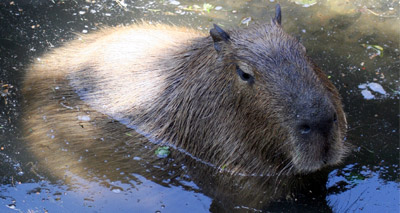Urgent call to recognise beaver as a native species

RZSS and SWT say there is scientific evidence to suggest that beavers could be a key asset to Scotland, helping to restore depleted wetland ecosystems.
The Scottish Government is being urged to officially recognise the Eurasian beaver as a native species, in a bid to protect its survival in Scotland.
After being extinct in Scotland for more than 400 years, beavers were reintroduced in Knapdale Forest, Argyll in 2009. A separate population now also exists in Tayside.
It has been eight months since Scottish Natural Heritage submitted its Beavers in Scotland report to the Scottish Government. The report outlines four possibilities for the future of the species.
Two leading partners in the Scottish Beaver Trial, the Royal Zoological Society of Scotland (RZSS) and the Scottish Wildlife Trust (SWT), are urging the government not to delay their decision any longer.
The situation has become all the more critical, they said in a recent statement, as beavers are being indiscriminately culled in Tayside. Recent reports of pregnant beavers being culled, as well as those that had recently given birth, prompted calls for greater protection for the species, which is viewed as a pest by some farmers and landowners.
RZSS and SWT say there is scientific evidence to suggest that beavers could be a key asset to Scotland, helping to restore depleted wetland ecosystems.
But in order to maintain the genetic health and long-term viability of the species, urgent work is needed to augment and manage the Tayside and Argyll populations.
The two groups also strongly advocate further licensed releases of beavers into other appropriate areas in Scotland, in order to limit the risk of in-breeding and local extinctions.
'We understand that the Scottish Government's consideration of the future of beavers has involved listening to the views of a wide variety of stakeholders,' they said in a joint statement.
'We support this inclusive approach and are keen to continue dialogue on finding sustainable ways of managing localised impacts beavers may have, but strongly contend this should not be an excuse for delaying a decision on the future of beavers in Scotland still further.'



 The Veterinary Medicines Directorate (VMD) is inviting applications from veterinary students to attend a one-week extramural studies (EMS) placement in July 2026.
The Veterinary Medicines Directorate (VMD) is inviting applications from veterinary students to attend a one-week extramural studies (EMS) placement in July 2026.